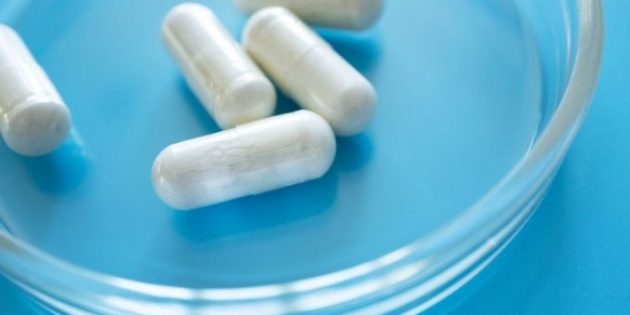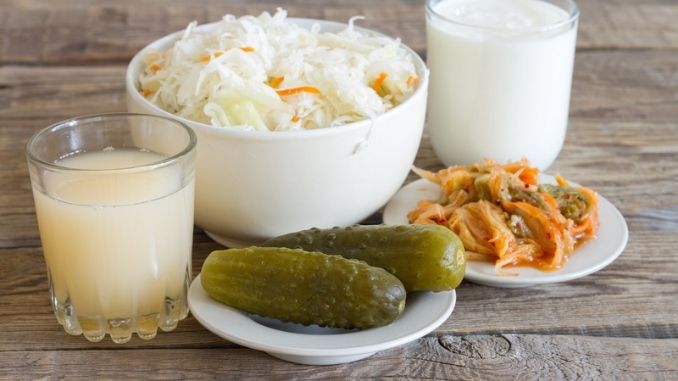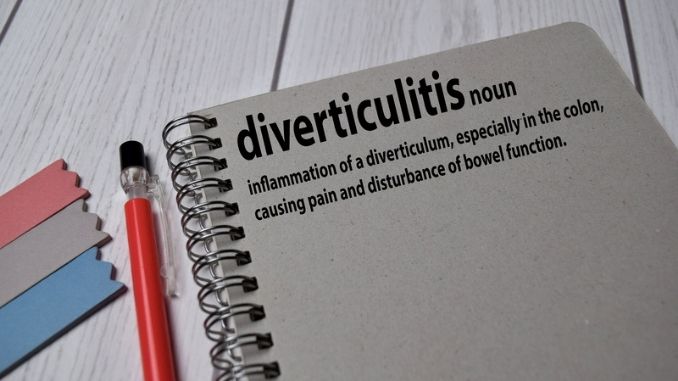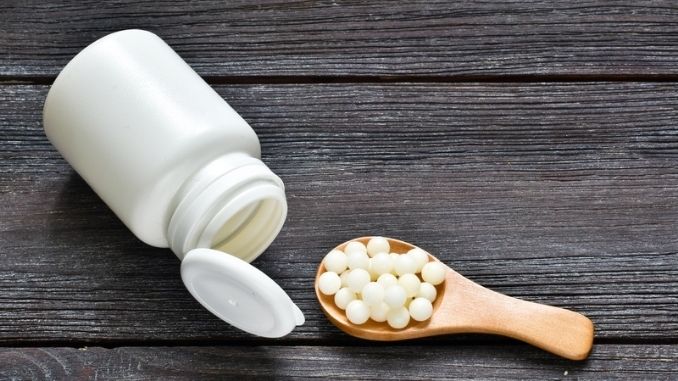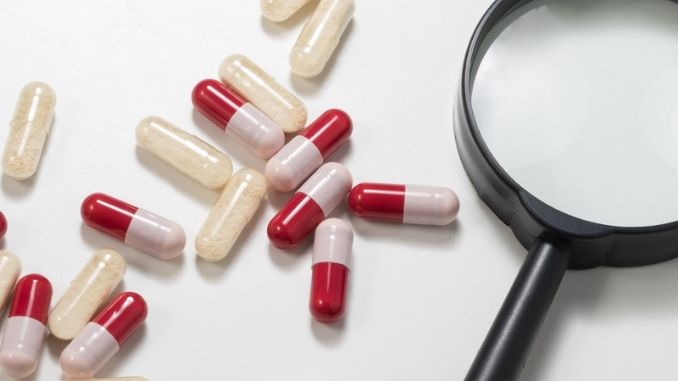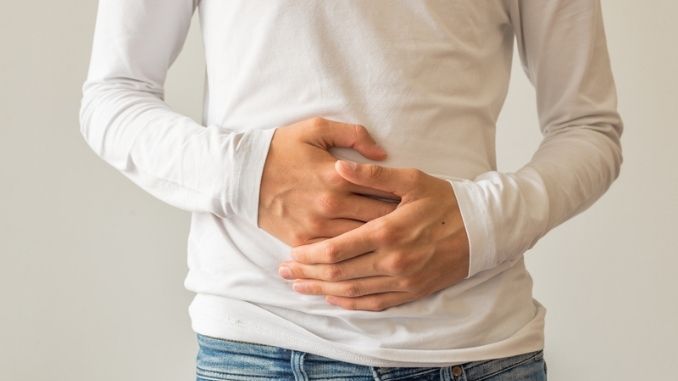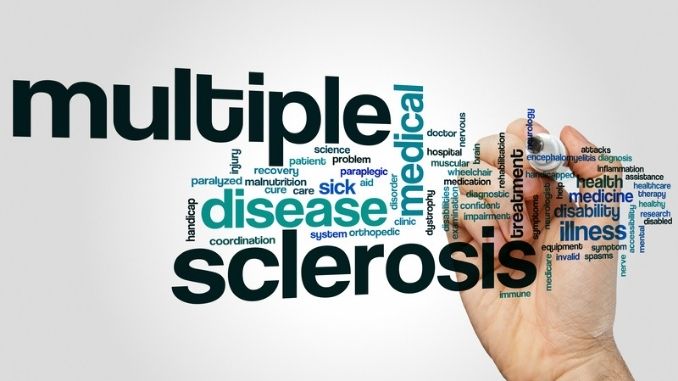Probiotics are “good” bacteria, similar to those that naturally occur in your digestive tract to keep you healthy. Probiotics can be consumed through your diet, in foods like yogurt, fermented vegetables, and certain cheeses. They are also available ‘over the counter in capsule, tablet, and powder form.
There are different types of probiotics, and each has different strains. Lactobacillus casei, in particular, appears to be the most effective, according to research. However, probiotics such as L. casei can’t do it alone. You’ll need to follow a balanced diet to get the full benefit of L. casei and keep your digestive system healthy. This should include:
- An abundance of vegetables and fruits (canned and frozen are just as nutritious as fresh)
- Plenty of whole grains
- Fat-free or low-fat milk products
- Lean meats, fish, and poultry
- Eggs
- Nuts
- Beans
Diverticulitis
Diverticulitis is an inflammatory condition of the digestive tract where small pouches, called diverticula, form in the large intestine. The state may lead to diverticulitis if these pouches become inflamed or infected.
Since diverticulitis is associated with a low-fiber diet, dysbiosis is common in patients with diverticular disease. Dysbiosis is an obstruction in the gut microbiota homeostasis caused by an imbalance in the microflora, changes in their functional composition and metabolic activities, or a shift in their local distribution. Probiotics may restore the balance of gut flora by decreasing pathogenic gram-negative bacteria. Probiotics contain beneficial species of gut bacteria. In some cases, they can also help with digestive conditions.
One 2016 review suggested that probiotics may reduce symptoms and recurrence of diverticular disease. However, there is not yet enough evidence to prove that probiotics are an effective treatment for diverticulitis.
Urinary Tract Infections (UTIs)
Urinary Tract Infections (UTIs) are prevalent and can involve any part of your urinary system, including the urethra, ureters, bladder, and kidneys. Symptoms typically include frequent urination, pain when urinating, and pain in your side or lower back.
Probiotics can help keep the urinary tract healthy and free from harmful bacteria. In particular, a group of probiotics called lactobacilli may help treat and prevent UTIs by preventing harmful bacteria from attaching to urinary tract cells. While there are many good probiotics, each serves a different purpose. For UTIs, Lactobacillus reuteri is considered the best probiotic.
How does it work? Lactobacillus reuteri coheres to the bladder, vaginal and intestinal cells, displaces and prevents adhesion by intestinal and urogenital pathogens, inhibits the growth of these harmful organisms, and can kill HIV and other viruses through its acid production. This also possesses immune-modulatory activity.
Another good probiotic for UTIs is Lactobacillus rhamnosus.
How does it work?
Like Lactobacillus Reuters, Lactobacillus rhamnosus has been proven to cohere to cells in the bladder, vagina, and intestine. It displaces and prevents adhesion by intestinal and urogenital pathogens, inhibits the growth of harmful bacteria and yeast, can kill HIV and other viruses through its acid production, and stops pathogens from forming difficult clumps or biofilms for drugs to eradicate.
Once you invest in good-quality probiotics with the right type of bacteria, make sure to eat plenty of leafy greens, veggies, and berries. Remember that the proper diet will keep your urine alkaline and can help prevent UTIs.
Gastroesophageal Reflux Disease (GERD)
Acid reflux is directly linked to your gastrointestinal tract. It occurs when the acid from your stomach comes back up your esophagus, causing discomfort and, over time, damaging your esophagus. Probiotics are becoming an increasingly popular approach in the fight against acid reflux. But why would probiotics help with this problem? While there is not a wealth of research on this yet, there is a growing field of thought that probiotics can indeed help alleviate acid reflux.
Acid reflux, also known as heartburn, can have several possible causes.
1. Overindulgence
Overeating food can overfill the stomach, pushing food nearer to the esophagus and as it ferments. The acid may start to bubble up, causing heartburn. The types of foods you eat can cause problems as well.
2. Chronic Stress
Your digestive system is intricately linked to your nervous system. When stressed, your digestive system receives less blood flow, creating problems. Your gut bacteria are increasingly implicated in your stress management, so probiotics may help combat this.
3. H. Pylori
H. Pylori is a bacterial infection that typically starts in childhood. It is believed that two-thirds of the world’s population may have H. Pylori, but it only affects a few of us adversely. In your stomach, these bacteria can change the environment around them by reducing the acidity so they can survive. They penetrate the stomach lining, effectively hiding where the mucous membrane protects them so the body’s immune cells cannot reach them. These bacteria also secrete an enzyme called urease, which converts urea to ammonia. This ammonia reduces the stomach acidity around the bacteria’s area, enabling the bacteria to survive.
It is thought that probiotics can help combat H. Pylori in several ways:
- Probiotics are supposed to help strengthen the barrier against H. Pylori by producing antimicrobial substances and competing with H. Pylori for adhesion receptors, i.e., space on the stomach lining.
- It is also thought that probiotics work to stabilize the gut mucosal barrier. The production of relatively large amounts of lactate by Lactobacilli is an inhibitory factor of H. Pylori, as it might lower the H. Pylori urease.
- Probiotics can modify inflammation levels by interacting with the epithelial cells and aid in controlling the secretion of inflammatory proteins.
Probiotic supplements, particularly those containing strains of Lactobacillus, may well help alleviate acid reflux. A probiotic supplement containing Lactobacillus acidophilus and Lactobacillus rhamnosus should be considered. When combined with triple therapy to treat H. Pylori infection, these two probiotics can indeed improve the eradication rate of H. Pylori infection, which in turn can reduce the severity of acid reflux symptoms.
Gut Health for Multiple Sclerosis
Your gut microbiome may have a notable role in immune system regulation and exert anti-inflammatory, antioxidant, and metabolic effects on people with multiple sclerosis (MS). Targeting the gut microbiome might be an integrated approach for preventing, managing, and controlling inflammatory and autoimmune diseases like MS.
Some studies have shown that alteration of the gut microbiome could influence inflammatory responses in people with MS. In this regard, there is an exciting role of diet and gut microbiome in the modulation of immune diseases. Furthermore, MS could be treated via modification of gut microbiota and probiotics administration. On the other hand, Probiotics may have favorable effects as a functional food and good microorganisms through normalization of the imbalanced gut microbiome. However, more studies are required to elucidate the potential role of probiotic therapy in promoting the immune system and suppressing inflammation.
A healthy and balanced diet combined with daily exercise may help improve MS symptoms. This includes decreasing fatigue, maintaining regular bowel and bladder functions, improving the health of skin, bones, teeth, and gums, strengthening the heart, and improving muscle strength and flexibility.
Probiotics are safe for most of the population, but side effects can still occur. The most common side effects are a temporary increase in gas, bloating, constipation, and thirst. Some people can also react poorly to probiotic supplements’ ingredients or naturally occurring amines in probiotic foods. If this happens, stop using the probiotics. In rare cases, immunocompromised people and those with prolonged hospitalizations or recent surgeries may develop an infection from probiotic bacteria. But of course, one should always weigh the risks and benefits before consuming any supplement. Talk to your doctor about their recommendations on what probiotics might be right for you.
Your diet is the key to good health. Learn the best ways to safely and naturally heal your body here.
